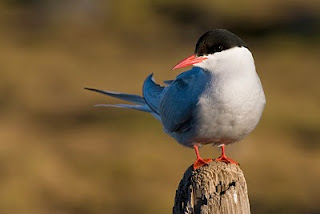Turn, Turn, Turn
 Around this time of the year many of us find ourselves reflecting on our achievements, near misses and down right failures that have marked the past twelve months. If we’re lucky the balance sheet may just shade to the positive and we can feel a small sense of satisfaction in not completely screwing up our life, loves or job.
Around this time of the year many of us find ourselves reflecting on our achievements, near misses and down right failures that have marked the past twelve months. If we’re lucky the balance sheet may just shade to the positive and we can feel a small sense of satisfaction in not completely screwing up our life, loves or job.How you draw up that balance sheet largely depends on your outlook to life, but also on what’s happened to you in the recent past. A recent bad experience can cloud and distort, turning what others might see as a minor mishap into a major catastrophe. Usually this distortion will be momentary and in no time you’ll be back on an even keel, but occasionally you can find yourself seriously winded and it takes some time to get back on your feet.
Often, what is so difficult to do is to squarely face the discomfort, pain or disappointment. Blaming our injury on others may allow us to shrug off the worst effects and direct our pain outwards and project it onto other people or events. It’s a natural response; none of us likes to be hurt or to acknowledge that we fall short. The trouble is that such behaviour can become habitual and in doing so we build ourselves a carapace. It seems to work in deflecting the darts with which life and others prick us, but it makes it impossible for warmth, love, friendship and help to break through.
Two of my favourite tales are by Oscar Wilde, “The Selfish Giant” and “The Happy Prince”. In the former the giant had a marvellous orchard full of peach trees, but he built a high wall and forbade the local children from playing in the orchard. Springs, summers and autumns came and went and outside the orchard birds sang, flowers bloomed and trees blossomed but the orchard was in perpetual winter. Then one day all this changed, in the garden a linnet sang and on looking out of his castle window the giant saw children in the trees and blossom filled the trees. The garden rang with laughter and the sound of birds but under one of the trees a small boy stood. He was too small to climb the tree and it was still covered in frost and snow. Immediately the giant understood; he picked up the boy and as he placed him on a branch of the tree the frost and snow melted and the tree blossomed. The giant knocked down the wall and gave the orchard over to the children; and thereafter he delighted in the children’s playing and laughter.
In “The Happy Prince”, a swallow that should have migrated to Egypt with his fellow swallows instead nests in a beautiful gilded statue high above a town square. The statue is that of the Happy Prince and while nesting there the swallow discovers that tears are falling from statue. The Prince explains that when he was alive he lived in a plush palace never caring for what happened outside his palace walls and never allowing sorrow to enter his life. Now from his high vantage point he could see all the pain and misery that existed in his town. And although he only had rubies as eyes and an iron heart what he saw made him weep.
The longer the swallow stayed the colder the weather became, but he did not leave to join the other swallows in Egypt. Instead he did the Happy Prince’s bidding; taking the ruby from the Prince’s sword to a poor mother, and the two sapphires that were his eyes to a young man in a garret and a little match girl. With the Prince now blind the swallow vowed to stay beside his friend and act as his eyes, flying over the town and telling the Prince of the all the misery that existed there. Hearing this the Prince asked the swallow to strip him of the gold leaf that covered him and to distribute it to the poor. This the swallow did and as each day and night grew colder he sat with the Prince who he had grown to love; until one extremely cold night he died at the feet of the Prince. In that hard frost the Prince’s own iron heart cracked. Having lost his jewels and gilt the statue looked derelict and the town council dismantled it and took the cracked heart to be melted down. However, that heart could not be smelted and it was discarded on a dust-heap where the dead swallow was lying.
““Bring me the two most precious things in the city,” said God to one of His Angels; and the Angel brought Him the leaden heart and the dead bird.
“You have rightly chosen,” said God, “for in my garden of Paradise this little bird shall sing for evermore, and in my city of gold the Happy Prince shall praise me.””
Finally, the tale of the swallow and its missed migration brings me to the recent story about the Artic Tern (hence the punning title). As an achievement its annual migration of some 71,000 km takes some beating. If I could look back on a comparable achievement at the end of a year I’d feel mightly pleased.


Comments